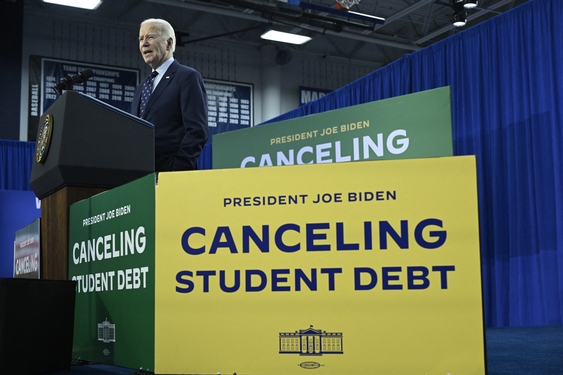Senator Robert F. Kennedy stands on the back of a truck in Indianapolis to address the crowd: “Even in our sleep, pain which cannot forget falls drop by drop upon the heart, until, in our own despair, against our will, comes wisdom through the awful grace of God.”
He had lost his ideological fellow Martin Luther King, Jr. only hours before. The nation will soon burn with anger and despair, but this city will remain quiet.
I cannot help but wonder what kind of country Kennedy saw. What wisdom did he expect, what inherent goodness did he see, in a people who seemed hell-bent on proving him wrong? In 1968, was Kennedy at the vanguard of the second coming of change – touring the poorest parts of the country, advocating a continuation and extension of civil rights legislation, demanding an end to the war in Vietnam, promising a gentler world – or was he the last gasp of a movement that had begun to snap back like a cosmic rubber band?
He gives a buck-toothed smile and brushes back his eternally unruly hair.
He is Bobby, and he is, in this moment, forever. For those who knew him and those who know him only in pictures, this is the crest of his wave – at once marvelous and tragic.
He has just won the California primary, giving his campaign for the White House new life. He will shortly step off the stage and into the kitchen of the Ambassador Hotel.
“My thanks to all of you,” he says to his assembled faithful. “And now, it’s on to Chicago, and let’s win there.”
Forty years later, for all of the mythic status he enjoys, for all of the hopes that surrounded his run for the presidency and all of the conspiracies and finger-pointing that enshroud his death, what legacy has Bobby left?
Violence is ongoing in the Middle East and religious hatred still festers in minds across the world. Large swaths of the country are still desperately poor, forgotten by our leaders. Vietnam may have ended, but Iraq seems to have only begun. The specter of assassination has fallen over another freshman senator running for the presidency and demanding change.
“These are different evils, but they are the common works of man,” he says in South Africa in 1966. “They reflect the imperfections of human justice, the inadequacy of human compassion, the defectiveness of our sensibility toward the sufferings of our fellows.”
Filmmaker Shane O’Sullivan, whose documentary RFK Must Die: The Assassination of Bobby Kennedy examines claims of multifarious conspiracies beyond the lone gunman theory that convicted Sirhan Sirhan, asks what relevance Kennedy’s life and death hold on the country today.
“There’s a strong anti-war feeling and a fairly polarized country on various issues that resonates with Bobby Kennedy’s time,” he says. “The country was really going to change based on what he touched in the campaign, and obviously that was against a lot of … interests of the establishment.”
Kennedy approaches the dishwashers in the kitchen to shake their hands. He raises his hands to his head, reels backwards and falls.
There was, when Bobby died – and still is, every time we look back longingly to a time of promise – a slide towards resignation, an unspoken agreement that we are all living on borrowed, hollow time. What is the point, true believers ask, in having hope dashed so suddenly and completely? What is the value, onlookers wonder, in setting your sights so impossibly high?
Though O’Sullivan suggests that Kennedy’s legacy lives on through his children and in the footage of his speeches and public work, saying “I think he’s a timeless and very powerful figure that can still inspire people today,” has Bobby’s death ultimately overshadowed his life?
“Our answer is the world’s hope: It is to rely on youth,” Kennedy would respond to such claims. “Each time a man stands up for an ideal, or acts to improve the lot of others, or strikes out against injustice, he sends forth a tiny ripple of hope, and crossing each other from a million different centers of energy and daring, those ripples build a current which can sweep down the mightiest walls of oppression and resistance.”
Ripples, of course, begin and end. They are sparks, rarely constant, consumed back into the ebb and flow. But they are our hope, for nothing can move without first rippling the calm, nothing begins without the million energies finding a common cascade through the static surface of what has come before.
RFK Must Die: The Assassination of Bobby Kennedy airs June 9 at 8 p.m. on the Documentary Channel.



